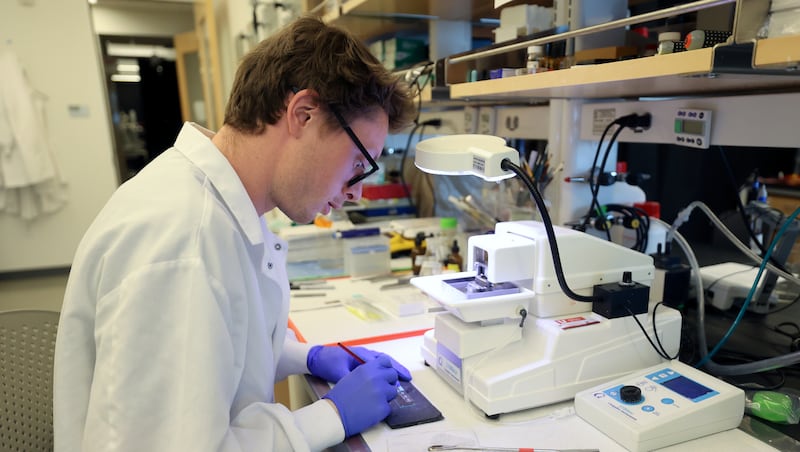Opinion: Utah's Quiet Engine of Innovation—Don't Stifle It With Funding Cuts

Science quietly powers Utah’s prosperity. From lifesaving diagnostics at ARUP Laboratories and cutting-edge biotech startups to clean energy research at Utah State and drought-resistant crops developed through university partnerships, science is behind much of what makes life in Utah better, longer and more secure.
In 2024, the National Institutes of Health (NIH) awarded over $300 million to Utah institutions. That funding supported thousands of jobs, helped launch companies, and enabled groundbreaking research in everything from cancer treatments to Alzheimer’s to rare disease therapies. Public health advances that benefit every Utahn — urban or rural — almost always begin through federally funded research.
But now, that progress is in jeopardy.
Proposed cuts and restrictions to NIH funding could have devastating effects on Utah’s research institutions and economy. The plan to slash NIH’s overall budget by nearly half, coupled with a proposal to reduce the indirect cost reimbursement to universities from around 50% to 15%, would mean far less money to cover the real costs of doing science. Basics like lab space, utilities, data storage and administrative support aren’t luxuries — they’re the infrastructure that makes research possible.
For public universities like the University of Utah and Utah State, this isn’t just a budget concern. It’s a structural threat. Without adequate indirect cost support, universities would either have to drastically scale back research activity or shift the financial burden to students and state taxpayers. Both options would weaken Utah’s competitive edge in science and technology.
The consequences would ripple far beyond campus. Utah is known for its “Industry” motto — a title that honors the resourcefulness and hard work that built our communities. Today, that industrious spirit thrives in our biotech labs, clean tech startups and health research centers. But industries can’t thrive without innovation. Utah’s life sciences sector depends on a steady pipeline of NIH-supported talent and discoveries emerging from research. Companies like Recursion, Myriad Genetics and BioFire Diagnostics thrive because of academic partnerships and access to skilled graduates. Pulling funding would slow innovation and shrink the talent pool.
But it’s not just about economics. It’s about people.
NIH funding supports clinical trials that help Utah families battling cancer. It funds suicide prevention programs in our schools, mental health outreach in rural counties, and pediatric care innovations at Primary Children’s Hospital (PCH). It supports research for Native American communities and families dealing with chronic conditions like diabetes and asthma. Without that funding, many of these programs would disappear.
I’ve seen the impact of public health investment firsthand. After I tested positive for latent tuberculosis as a student, I received free weekly treatment and health monitoring through the Utah County Health Department. It was science-backed care, delivered through a local system supported by federal resources. Without that treatment, I could have developed active tuberculosis — a threat not just to me but also to others. The system worked because it was built on scientific research and proactive policy. That kind of safety net doesn’t happen without sustained funding.
Furthermore, my nephew, Wesley, was cared for at PCH when he was just four months old. He was diagnosed with polyarteritis nodosa, a rare autoimmune disease that causes inflammation and damage to the heart. The NIH not only funds various programs at PCH but also was crucial to backing the science that led to properly diagnosing and saving Wesley.
These cuts hurt the next generation. Graduate students and early career scientists — many of whom come from Utah — rely on federal research grants to get their start. If funding dries up, so do those opportunities. We risk losing promising young minds to other careers or other countries.
This is not a partisan issue. Scientific progress should never be about politics. Every Utahn benefits from the medications they take, the clean water they drink, the safe food they eat and the medical care they receive. All of these are underpinned by science. Restricting it weakens our shared safety net and quality of life.
Utah is built on hard work, innovation and foresight. Cutting science funding now would undermine the very foundation that allows us to adapt, compete and care for our communities. Science works for Utah — let’s keep it that way.
Post a Comment